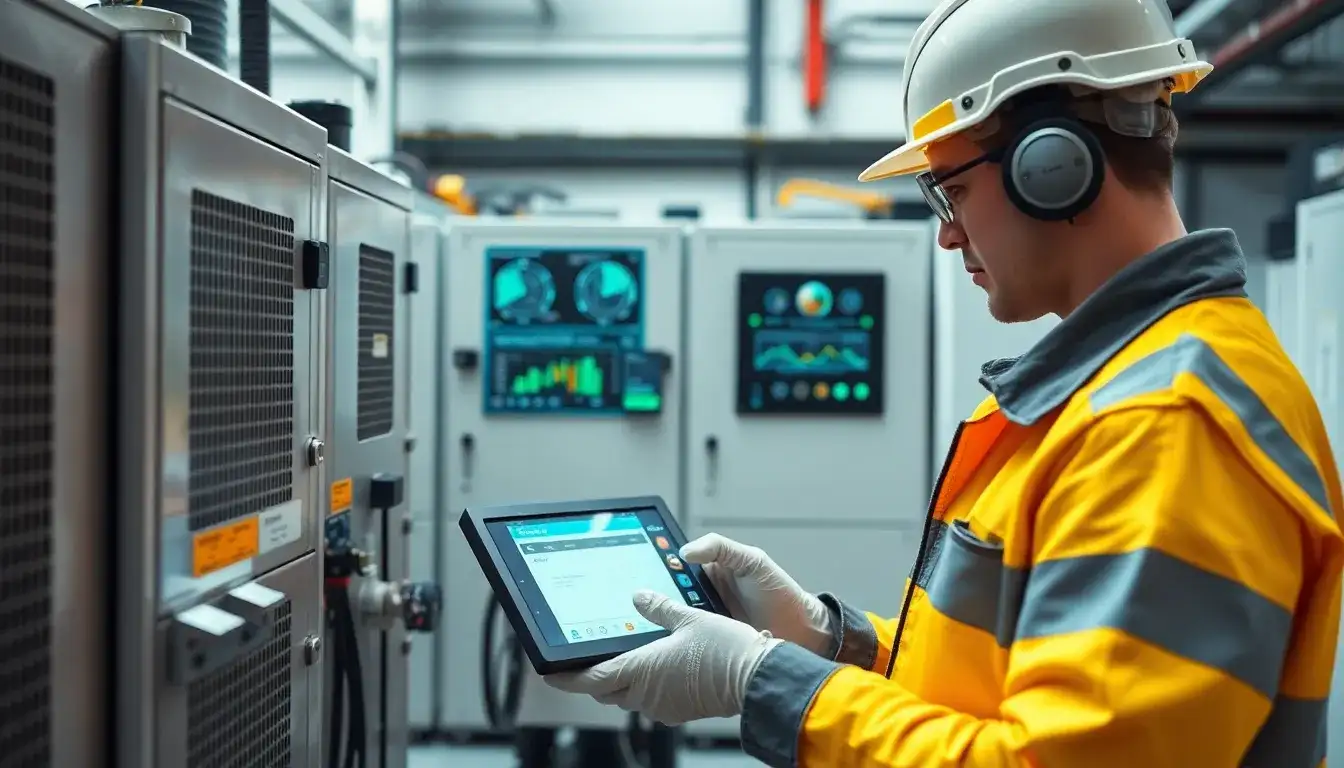IEEE Publishes BMS Design Standards for Stationary Systems
On February 20, 2025, the Institute of Electrical and Electronics Engineers (IEEE) released a new guidance document titled “IEEE Recommended Practice for Battery Management Systems in Stationary Energy Storage Applications” (IEEE 2686-2024). This document provides best practices for the design, configuration, and integration of battery management systems (BMS) for stationary energy storage systems, including grid utility storage.
As stationary energy storage systems have become essential in stabilizing supply and demand during peak usage, storing energy from renewable sources like wind and solar, and providing emergency power during severe weather events, effective BMS are crucial for ensuring the safety, reliability, and longevity of these resources.
The guidance was developed by the IEEE’s Energy Storage and Stationary Battery Committee, led by David Rosewater from Sandia National Laboratories, with Sergio Mendoza from Exponent serving as vice-chair. It offers detailed specifications and recommendations aimed at battery manufacturers, battery energy storage system (BESS) managers, and other stakeholders in the industry.
Key Best Practices for BESS BMS
The guidance includes several considerations for manufacturers and utilities, such as:
- Technologies: Recommendations on peripheral devices, subsystems, balancing methods, sensor types, placement, and both physical and software architectures.
- Configurations: Guidelines for grid-supporting and non-grid-supporting applications, including transportable energy storage systems that remain stationary during operation.
- Battery Types: Insights on various battery types including lithium-ion (Li-ion), flow, sodium-β, and alkaline zinc-manganese (Zn-MnO2).
- Interoperability: Standards for communication, cybersecurity access control, software update management, and minimum measurement accuracy and state-of-charge reporting.
Implications for Battery Manufacturers and Utilities
The publication of this standard represents a significant milestone for the battery industry, providing a comprehensive framework for the design of stationary energy storage systems. It aids BESS manufacturers and utilities in improving the reliability, safety, and efficiency of their systems. Key applications of the document include:
- Establishing guidelines for monitoring and managing battery state-of-charge (SOC) and state-of-health (SOH).
- Developing a framework to characterize sensor accuracy and redundancy to prevent malfunctions in protection mechanisms.
- Implementing fault detection and diagnostic procedures to identify and mitigate potential risks.
- Enhancing data communication and interoperability among different components of the energy storage system.
- Setting criteria for the safe integration of BESS into the grid and other applications.
- Providing maintenance and lifecycle management guidelines to extend battery longevity.
The guidance reflects the growing importance of energy storage in integrating renewable energy sources and maintaining grid stability, emphasizing the critical role of BMS in ensuring that battery cells operate within safe temperature, voltage, and current limits.
By adopting the best practices outlined in the IEEE document, utilities and BESS manufacturers can enhance battery safety, minimize the risks of thermal runaway and battery-related fires, and effectively deploy grid storage solutions at scale to meet the increasing demands of communities and municipalities worldwide.
Exponent’s Expertise in Battery Management
Exponent’s battery experts offer extensive guidance on BESS design, risk assessment, installation, integration, and configuration. With decades of experience working with industry standards and organizations, including the IEEE’s Energy Storage and Stationary Battery Committee, our multidisciplinary consultants provide utilities and battery manufacturers with unparalleled technical support throughout the battery product lifecycle.
We invite you to reach out to us for assistance in enhancing your battery management systems and ensuring optimal performance and safety.
Original article by NenPower, If reposted, please credit the source: https://nenpower.com/blog/ieee-releases-new-standards-for-battery-management-systems-in-stationary-energy-storage-applications/



